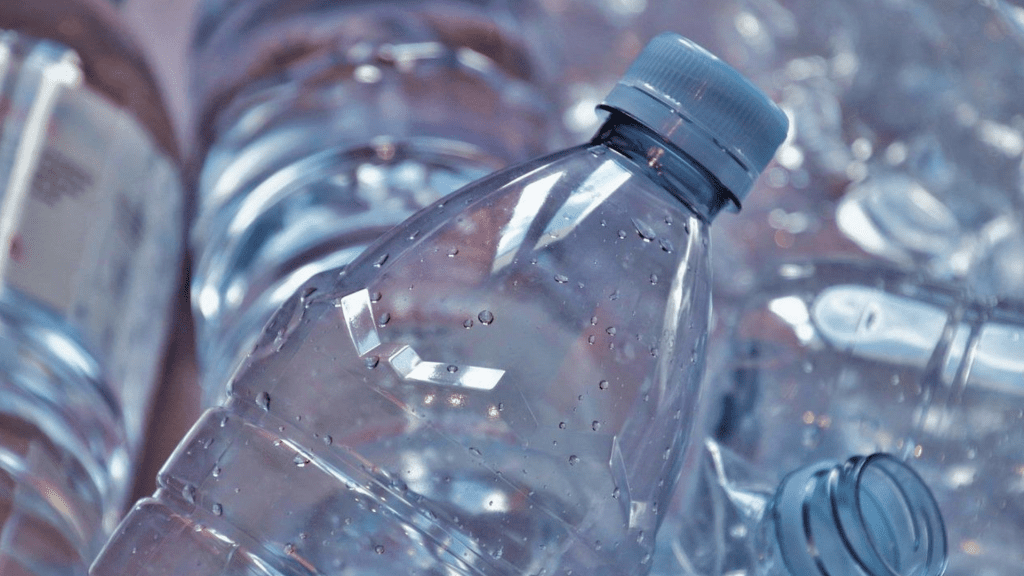Environmental and consumer advocacy groups have lodged a legal grievance against Coca-Cola, Nestlé, and Danone, alleging the dissemination of deceptive statements on plastic water bottles marketed throughout Europe.
The European consumer protection entity Bureau Européen des Unions de Consommateurs (BEUC), with backing from ClientEarth and the Environmental Coalition on Standards (ECOS), has issued an official notification to the European Commission and the Consumer Protection Cooperation Network, citing the three major food and beverage corporations for “alleged extensive violations of consumer protection laws.”
The legal grievance asserts that the plastic bottles are never entirely composed of recycled materials.
The UK environmental nonprofit organization ClientEarth contends that the statements frequently encountered on plastic water bottles are often inaccurate in substance. The group maintains that claims like “100% recycled” or “100% recyclable” can mislead consumers into believing that bottles can be effortlessly recycled in a never-ending, circular process.
Legal experts argue that these assertions, frequently bolstered by “green” visuals and generic environmental slogans, can potentially deceive consumers into perceiving single-use bottles as an environmentally responsible option.
They maintain that the bottles are never composed entirely of recycled materials, and their recyclability hinges on various factors, including the existing infrastructure.
In alignment with BEUC’s complaint, ClientEarth has requested companies to discontinue the use of deceptive assertions that could dissuade consumers from making environmentally responsible decisions, such as opting for a reusable water bottle. This call aims to motivate food and beverage industry leaders to transition away from the detrimental single-use plastic business model and promote “deplastification.”
Rosa Pritchard, plastics lawyer at ClientEarth, said, “The evidence is clear – plastic water bottles are simply not recycled again and again to become new bottles in Europe. A ‘100%’ recycling rate for bottles is technically not possible and, just because bottles are made with recycled plastic, does not mean they don’t harm people and planet.”
A spokesperson from Danone said, “At Danone, we strongly believe in the circularity of packaging – and will continue to invest and lead the campaign for better collection and recycling infrastructure alongside our partners. We have also made real progress on our journey to reducing single use plastic and virgin plastic use in parallel (-10% in absolute since 2018).”
A spokesperson from Coca-Cola Great Britain said, “We’re working to reduce the amount of plastic packaging we use, and we’re investing to collect and recycle the equivalent of the packaging we use. We only communicate messages on our packaging that can be substantiated, with any relevant qualifications clearly displayed to enable consumers to make informed choices. Some of our packaging carries messages to drive recycling awareness, including whether our packages are recyclable and if they are made from recycled content.”
They continued, “We have an ambitious goal to collect and recycle a bottle or can for each one we sell by 2030, and we support well-designed ‘Deposit Return Schemes’ across Europe which we know can help us get our packaging back. We also aim to have 25% of all our volume sold globally in refillable/returnable glass or plastic bottles, or in refillable containers used when consuming from dispensed solutions. We’re making progress to help eliminate waste, and we know more must be done. We will continue to invest to advance our ‘World Without Waste’ packaging goals.”
A Nestlé spokesperson added, “We work hard to reduce the amount of plastic packaging we use; to lead investments and support packaging circularity alongside partners, and to communicate clearly with consumers who want to make informed choices. Nestle has reduced its amount of virgin plastic packaging by 10.5% since 2018, and we are on track to get to one-third less virgin plastic by the end of 2025.”
Should the European Commission concur with the complaint, it has the authority to orchestrate a synchronized reaction involving national consumer agencies. This may encompass requesting the companies to address the issue or levying fines within their respective countries.
